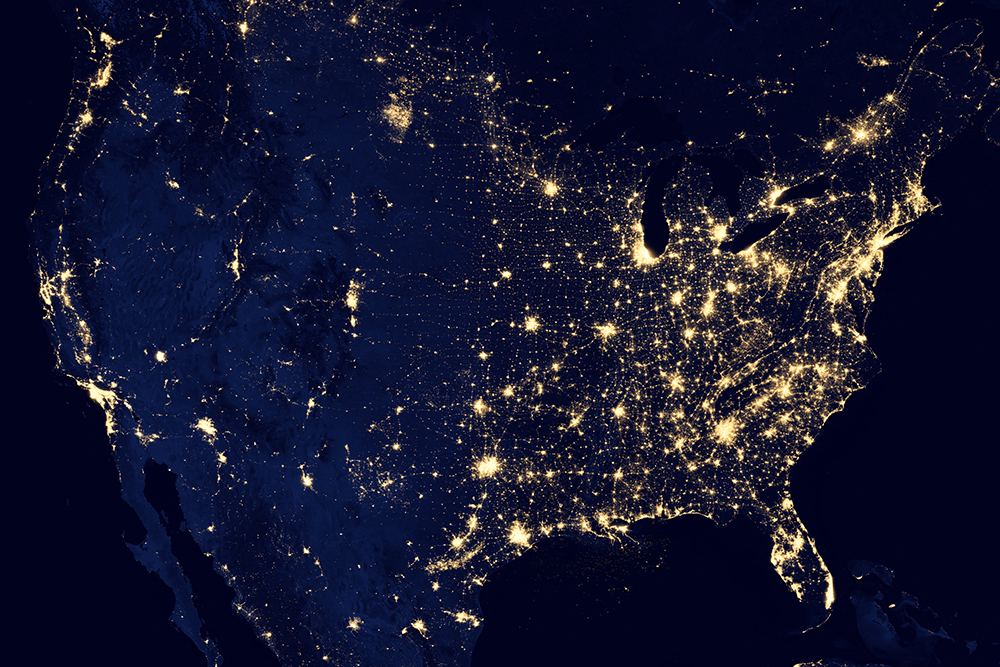Anyone can see that the lynching of more than 4,000 people over the history of this country reveals a sin that makes a lie out of Americas claim of liberty and justice for all. Too many people abetted or accepted this brutality. Too many people acquiesced to heinous forms of murder as a code of vigilante justice. Too many law enforcement officers and prosecutors remained silent. Some were even complicit. Anyone can see that lynching needs to be a crime punished by the full weight of federal law.
Anyone except Kentucky Sen. Rand Paul, who represents those who resist anti-lynching legislation. Paul chooses to continue the 120-year legacy of blocking efforts to make lynching a federal crime.
Rand Paul chooses to continue the 120-year legacy of blocking efforts to make lynching a federal crime.
Senate Democrats Kamala Harris of California and Cory Booker of New Jersey have sponsored Senate bill 488, which would make lynching punishable in federal court by 10 years in prison. Their Republican co-sponsor, Tim Scott of South Carolina, is, like them, an African American political leader who wants to make sure the terror of lynching is outlawed across the country in this moment of increased attention to racial injustice. But Paul deems the current language as too broad and is holding up a vote on the Senate floor.
In 1900, the first anti-lynching bill was introduced by Rep. George White, an African American. It stalled in the House Judiciary Committee. Then, Rep. Leonidas Dyer (R-Mo.) introduced an anti-lynching bill in 1918. Although the Dyer bill was passed by the House of Representatives, it was defeated in the Senate by Southern Democrats using a filibuster. In 1934, Sens. Edward Costigan (D-Colo.) and Robert Wagner (D-N.Y.) proposed an anti-lynching bill that was again defeated in the Senate.
In 2005, the Senate delivered an official apology for blocking anti-lynching legislation. But that didnt mean an anti-lynching law was actually passed. Even today, when the nation is being rocked by outrage over the death of George Floyd in Minnesota, an anti-lynching bill cannot make it through the halls of power on Capitol Hill. Floyds death at the hands of police is a tragic marker of the 100th anniversary of the last lynching in the state.
It was 100 years ago exactly, on June 15, 1920, when three Black men were dragged from their jail cell by a white mob of up to 10,000 people a few hours north of Minneapolis in the lakeshore town of Duluth, Minnesota. The men were beaten, tortured and hanged lynched.
Its important that we say their names: Elias Clayton, Elmer Jackson and Isaac McGhie. Each life taken by that mob deserves to be remembered, both for their innocence and Americas shame. The three men were murdered based on a lie. Irene Tusken, a white woman, falsely accused them of rape. The police all but gave the prisoners to the mob.
Afterward, anti-lynching legislation was championed by Nellie Francis, an African American suffragette and civil rights activist. Unlike in Washington, within the year Minnesota passed the law, which penalized police for not protecting men in custody from lynch mobs. But only on Friday did the governor posthumously pardon another Black man arrested in connection to the fake rape charge, Max Mason, who managed to escape being lynched.
Although Minnesota is not known as a state where lynchings took place, in fact at least 20 Native American, African American and white immigrant men were murdered in this diabolical manner there.
Lynching in America has taken many disgusting forms. Men, women and children were dragged to their deaths, burned alive, hanged from bridges, shot numerous times by mobs of white men. African American men were castrated. A pregnant woman, Mary Turner, was hanged, her unborn child cut from her uterus and stomped under the boots of white men.
The lynching of Frank McManus in Minneapolis.Library of Congress
These criminal acts are recorded through newspapers, photographs and even postcards. Murderers and co-conspirators stood proudly, smiling under hanging, beaten bodies. In 1882, a photograph displays the body of Frank McManus hanging from a large tree in Minneapolis while men wearing sport coats and vests gather underneath with their hands in their pants pockets, grinning.
We should know about these diabolical acts. Ida B. Wells-Barnett, African American journalist and educator, documented lynching and the failure of law enforcement as early as 1892 in Southern Horrors: Lynch Law in All Its Phases. Wells-Barnett sought to disprove the myth that this extrajudicial cruelty was solely punishment for the rape of white women. She uncovered that this white rage was often triggered by the political, economic and social progress of people of color in other words, keeping nonwhite people in a subservient place.
For nearly two centuries, protesters have demanded equal protection under the law for African Americans and the criminal prosecution of anyone violating those constitutional rights, including law enforcement officers.
This Minnesota town refuses to forget that horrible night when justice failed Elias Clayton, Elmer Jackson and Isaac McGhie.
Today, the streets of Duluth, Minnesota, are filled with chants against police brutality. They live in the shadow of the 1920 Duluth lynchings. This Minnesota town refuses to forget that horrible night when justice failed Elias Clayton, Elmer Jackson and Isaac McGhie.
The murders in Duluth were the last known lynchings in Minnesota, until former police Officer Derek Chauvin, his hand casually placed in his pants pocket, held his knee on George Floyd’s neck for more than eight minutes as he struggled to breathe.
While Paul was holding up the lynching legislation in Washington, D.C., last week, mourners attended the Minneapolis memorial for Floyd. The words of the gospel hymn “Amazing Grace” were sung over his casket and protesters stood respectfully outside. Family members asked them to remember his name. America must stop adding names to the list of thousands who came before him.
Home>>Europe>>George Floyd’s killing in Minnesota hasn’t moved Rand Paul to allow the Senate to pass anti-lynching legislation.

Europe







